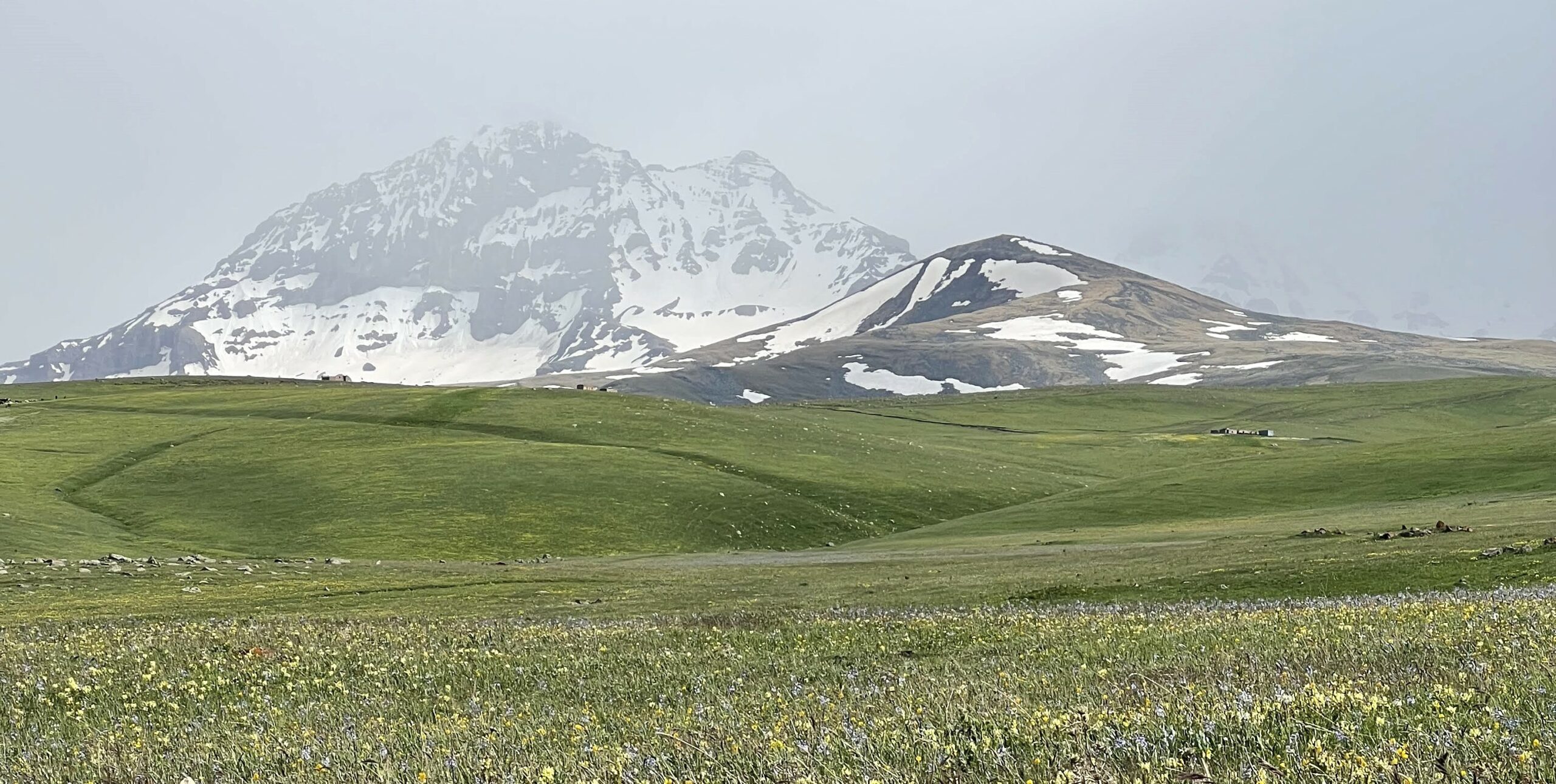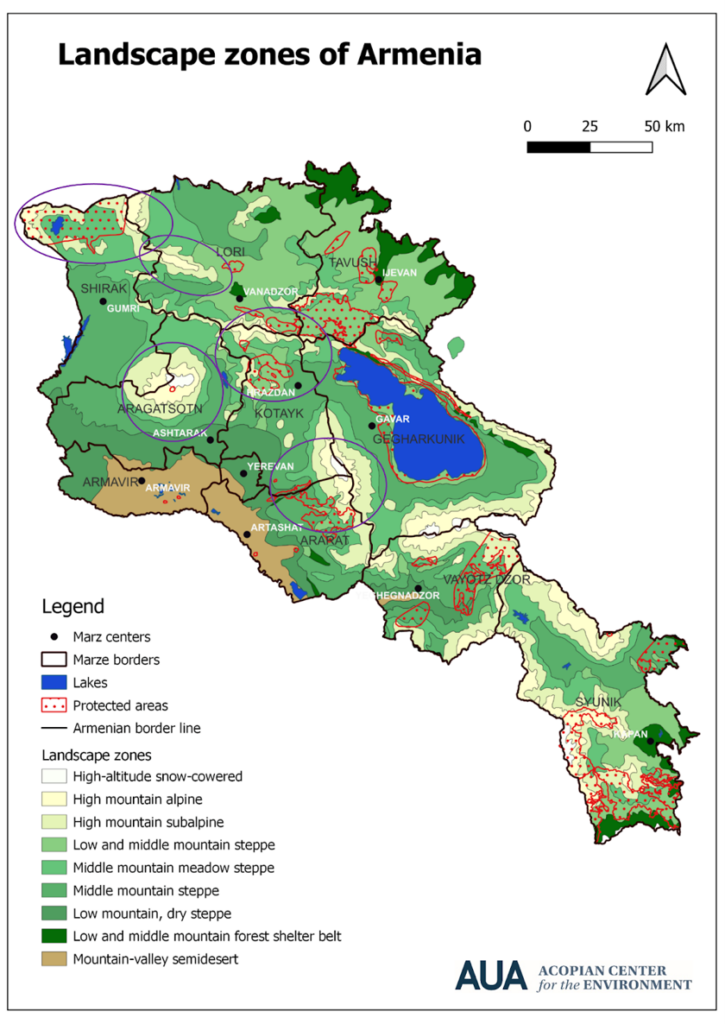ALPMEMA – ALPine mountain hay MEadows MAnagement

ALPMEMA is a 3-year project (April 2023 -March 2026) funded by Biodiversa+ with partners from Sweden, Armenia, Austria, Denmark and Germany.
Context
Mountain hay meadows constitute a habitat type protected under the EU Habitats Directive (Natura 2000 code 6520): They host a wide array of endangered plant- and animal species also protected under the EU-Habitats- as well as Birds Directives. The favorable conservation status of these meadows as well as those species inside and outside of formally protected areas (“Natura 2000 sites”) is often threatened by farmland abandonment or reduced human activities (“underuse”). The shortcoming of many policies addressing these threats might rest with the fact that compared to established governance practices that mainly focus on overexploitation, underuse is poorly addressed. There is an ongoing negative qualitative and quantitative conservation trend for mountain hay meadows. There is also a current formal infringement procedure at the EU level alleging that Germany takes insufficient conservation action on behalf of such meadows. Both indicate the socio-political urgency to maintain the remaining sites of such meadows with existing favorable conservation status and also to learn from best management practices implemented there and elsewhere.
ALPMEMA’s main objectives and activities
The overall aims of ALPMEMA are to identify best practices to maintain a favorable conservation status of mountain hay meadows despite the threat of underuse and to explain the influence of different ownership regimes as well as the location of such meadows inside of protected areas on these best practices.
In a transnational meta-analysis in Armenia, Austria, Germany, and Sweden, an interdisciplinary research team in close collaboration with local stakeholders will:
— Identify, based on established knowledge in case studies, current best practices related to the maintenance of favorable conservation status in mountain hay meadows,
identify innovative management tools, actor coalitions, and other new approaches that are suitable for the management of such meadows,
— Explain the significance of different ownership regimes and the significance of whether the areas are located in or outside formally protected areas,
— Describe the condition linked to the use of these meadows through remote sensing and outline the main actual and potential spatial effects of underuse of such meadows using geographical information systems, and
— Develop scenarios for the management of mountain hay meadows in 2030 and 2050 through playful approaches with different stakeholders.
The ambition of the ALPMEMA stakeholder engagement is (a) to develop societally robust knowledge, (b) to unlock different knowledge types and integrate the stakeholders’ different ‘forms of knowing’ into genuinely new knowledge, and (c) to ensure a holistic understanding of the problem and the co-creation of solutions/instruments that are ripe for implementation (e.g. considering possible barriers, acceptance) and can be transferred to different contexts. We will disseminate insights via scientific- and public networks. Methods and results will be published in open-access peer-reviewed journals and there will be extensive outreach and communication activities to different audiences.
ALPMEMA is designed to inform policymaking, but also management decisions at the local level of implementation. This is particularly valid for situations when the favorable conservation status is threatened or lost or needs to be reached for the very first time.
Partners of the project
— Department of Natural Science, Design and Sustainable Development, Mid Sweden University, Östersund, Sweden, Coordinator
— Acopian Center for the Environment, American University of Armenia, Yerevan, Armenia
— Department of Landscape, Spatial- and Infrastructure Sciences, Department of Economics and Social Sciences, University of Natural Resources and Life Sciences, Vienna, Austria
— Department of Geosciences and Natural Resource Management, University of Copenhagen, Copenhagen, Denmark
— Data and Analytics, DHI A/S, Hørsholm, Denmark
— Institute of Social Sciences in Agriculture, Div. Societal Transition and Agriculture, University of Hohenheim, Stuttgart, Germany
News Coverage
Researching Alpine Meadows in Armenia and Other European Countries
Contact
For more information on this project contact [email protected].
Site Selection in Armenia
The base map used to select sites in Armenia

